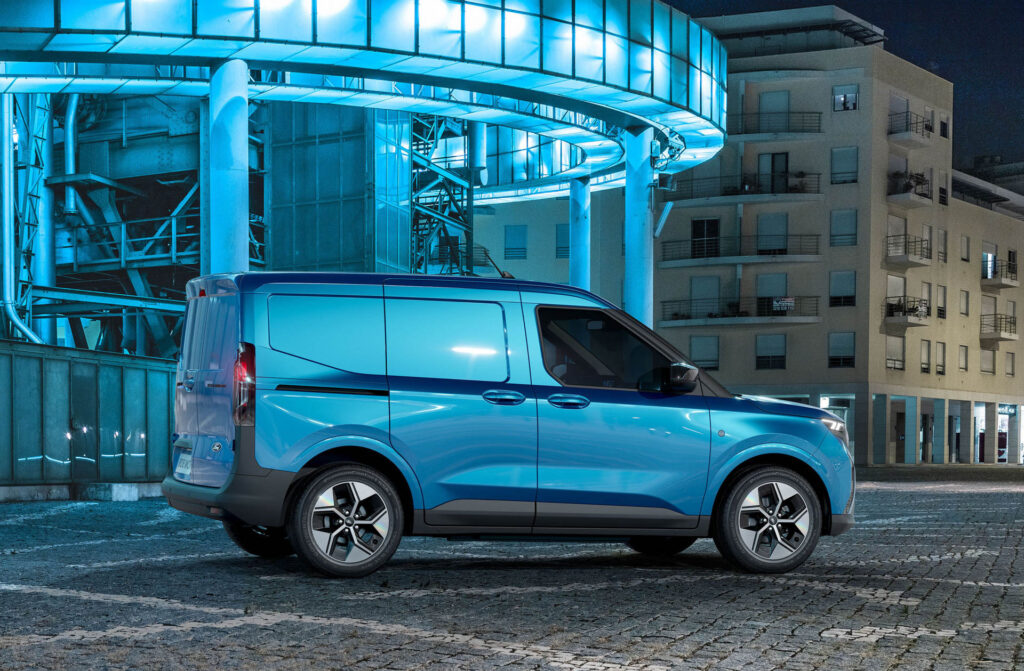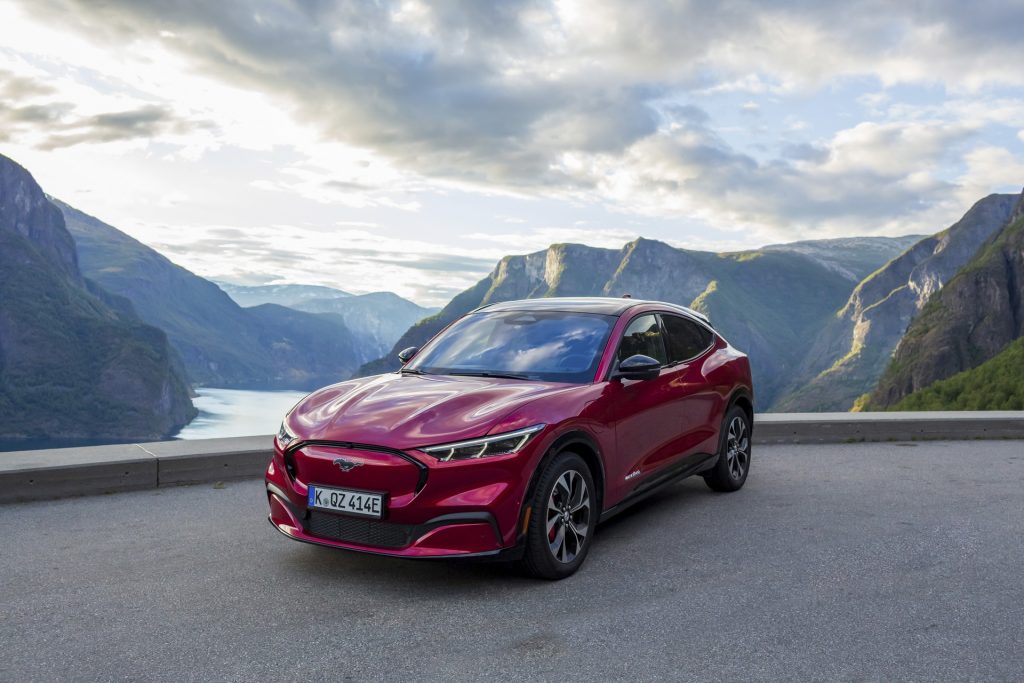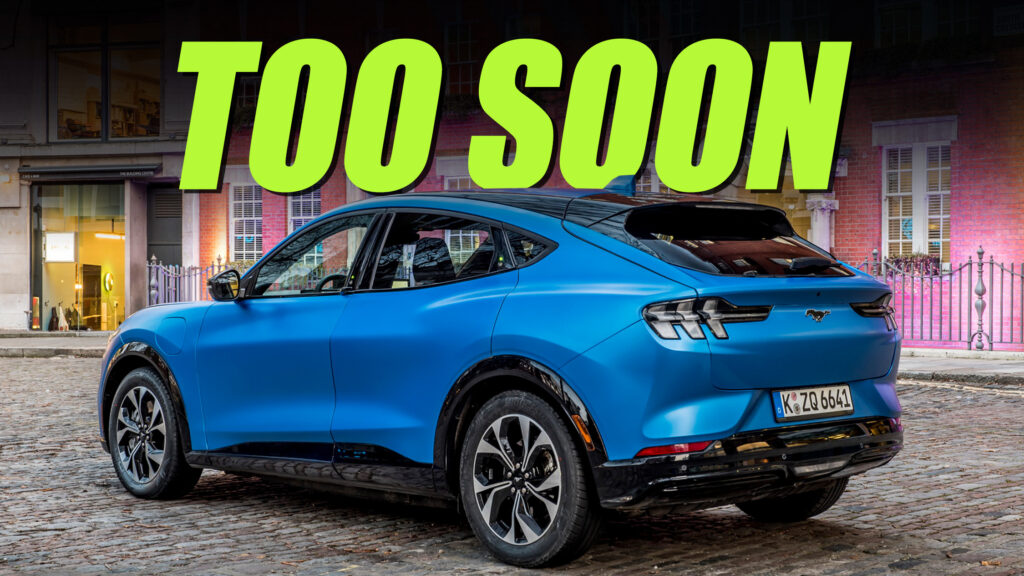- The carmaker says customer demand isn’t strong enough to justify only selling EVs.
- Ford has blamed higher EV prices and the removal of government incentives as reasons for waning demand.
- A plant in Valencia was to shift to only build EV models but will now build multiple powertrains.
Ford will reign in its electric vehicle ambitions in Europe and has acknowledged that its plan to go all-electric in the market by 2030 is no longer feasible.
The manufacturer announced in early 2021 that by 2030, it would sell nothing but EVs in Europe. In the interim, it had planned to transition all of its local models to plug-in hybrid or battery-electric powertrains by 2026. However, Ford Model E chief operating officer Marin Gjaja has acknowledged there isn’t enough customer demand to justify only selling EVs.
Read: Ford Capri Reborn As A Coupe Version Of Euro Explorer EV
“I don’t think we can go all in on anything until our customers decide they’re all in, and that’s progressing at different rates around the world,” he told Autocar. “I think customers have voted, and they told us that was too ambitious, is what I would say – and I think everyone in the industry has found that out the hard way. I would also say reality has a way of making you adjust your plans.”
Gjaja believes the high cost of EVs and the removal of government incentives are key reasons why demand for them has wavered recently. Moving forward, adopting a multi-powertrain approach will be important in ensuring the brand remains competitive in Europe.

“We’re all in from the standpoint of we’re going to compete aggressively, whether it’s a pure ICE, whether it’s a pure battery-electric vehicle, or hybrids in between, because what we’re seeing is customers want that freedom of choice to pick the right powertrain and the right vehicle for their use case,” Gjaja added.
Ford’s changing ambitions have already forced it to reconsider what to do at its factory in Valencia, Spain. After production of the current-generation Kuga ends at the site, Ford had planned to transition it to an all-EV site. However, it is now expected to build a model with different powertrain options at the site. Gjaja said a final decision on what to manufacture at the plant hasn’t been made but believes a “multi-energy” approach “gives us the best chance of success given the European market and where we are in adoption.”




